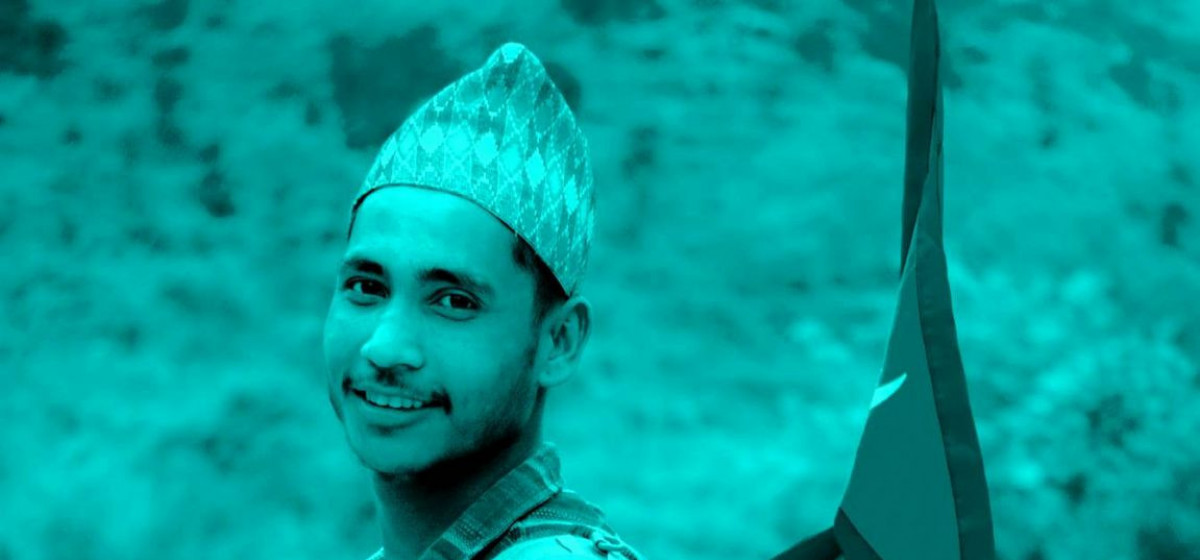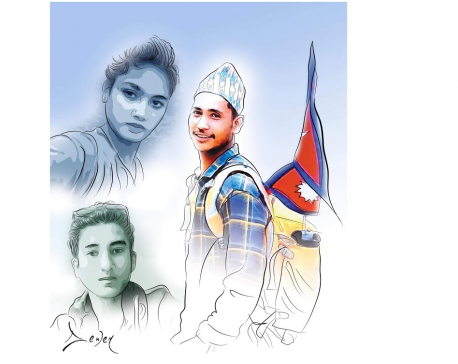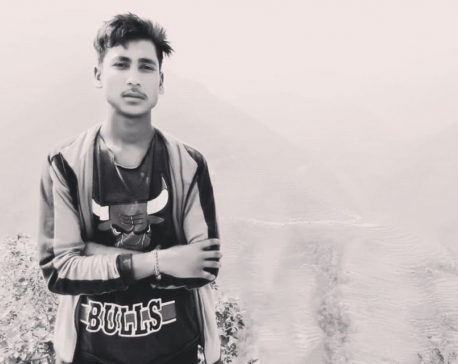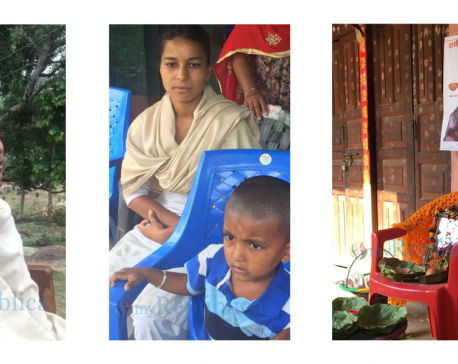
OR


Hisila Yami
Hisila Yami, former Minister of Physical Planning, Tourism and Land Reform, is a senior leader of Janata Samajbadi Party.hisila.post@gmail.com
During the People’s War (1996-2006), I was working as the secretary of People's Power Consolidation Department in the base area. I remember meeting a group of Dalits while I was on my way to Balidan Commune in Rukum. They were marching with panche baja, the traditional set of musical instruments. The group was displaying their instruments of production as if they werecarrying their weapons with confidence and pride. I was surprised, amused and satisfied to see such a sense of empowerment on their faces! That was 2005.
I am disturbed to see increasing assaults on Dalits, some 15 years after that episode. We have seen too many cases of violence in inter-caste marriages between the Dalits and so called upper caste couples after the end of the war. However, what is new and alarming about the gory incident that took place in Soti village in Rukum on May 23 is the killing of a Dalit youth Navaraj BK, along with four others and whereabouts of one is still unknown. They were all from Jajarkot. Both these districts—Rukum and Jajarkot—were Maoist base areas, the hot bed of the People’s War.
Navaraj BK was killed because he dared to marry his lover who belonged to a high caste,Thakuri Malla. What is pertinent is that most of the attackers, including those who instigated were local Maoist leaders and supporters. The Mayor of Chaurjahari Municipality, the place of the incident, was a Maoist leader. Similarly, the ward chair too was a product of the war. And the accused high caste Malla family too was Maoist who dared to call the victims ‘dum’, a derogatory term used for Dalits. The people who attacked are related to the ex-home minister, who also happens to be a prominent former Maoist leader. What is astonishing is that attempts are already being made to save the family of the girl by arguing that the girl is a minor. It is to be noted that there have been reports that the girl had fallen in love with Navaraj BK three years ago and this had been known to both the families. The girl had apparently asked Navaraj to fetch her on the day of the incident. It is to be noted that the family of Navaraj BK were sympathisers of the United Marxist Leninist (UML) during the war.
Today, both the Maoists and the UML have joined hands to form the Nepal Communist Party (NCP).
This incident has provoked me to look back at the history of relationship between the Dalit community and the Nepali communists, of which I was once a part of it. The communists were motivated to mobilize the Dalits on two grounds: they were poor, and they were socially marginalized. Communist leaders, most of whom belonged to upper caste (Brahmin-Chhetri), often revolted against their own high caste culture by entering into Dalit homes, drinking liquor and eating pork with them. This was considered a revolutionary step to shed their class and caste identity. However, their revolutionary step did not go far enough to marry Dalit women or men. In fact, in many cases the so-called communist leaders went out of their way to stop marriage between their siblings and the Dalits.
However, as the war progressed, the trend also reversed. There were a considerable number of high caste Brahmin and Chhetris marrying Dalits.The Maoist Party encouraged Dalits to assert themselves, and untouchability was punishable to the offenders.
The agenda of radical social transformation undertaken by the People’s War attracted the Dalit community in massive numbers. They not only participated in it with enthusiasm, but they were also most helpful during the period of heavy state suppression against the Maoists.
Being the poorest of the poor and relegated to untouchability, they readily gave shelter and helped in guiding Maoists to safety, undertaking great personal risks. They were happy that Maoists entered their homes, which had been shunned by the society for so long. In fact, the first martyr of the war was a Dalit child named Dil Bahadur Ramtel, who was killed by the police when he tried to save his non-Dalit teacher from getting arrested in his school in Gorkha in 1996. Indeed, many Dalits had been martyred during the war.
Maoists, on the other hand, gave Dalit more political space. It gave them special rights to participate in running the state affairs at different levels. Their traditional skill of blacksmith work was useful in making local guns, ammunition. Their traditional sewing skills went into making uniforms for PLA. Their traditional knowledge of tannery found use in making shoes and bags. And their customary talents of singing, dancing and playing music found a place in revolutionary cultural activities.
However, after the peace process, particularly after the Maoist obtained some state power, the gains made during war started whittling away. One of the earlier symptoms was breaking of marriages between Dalit and high caste couples within the Maoist party. Violent incidents associated with such marriages started taking place in communities. This further led to violence in community water sources in villages where they were punished for touching water. Of late, expulsion of Dalit tenants in cities like Kathmandu have been on the rise.
Why did I leave the communist party?
I was attracted to communist ideology because it addressed structural fissures in patriarchal feudalism. Although I had reservations against the monolithic character of communist party and its intolerance to critical thinking, I stuck to Maoist movement because it was relatively inclusive and had tried to develop democracy in the 21st century. However, after the peace process, and their fixation on government and state power, sticking to it by any cost, had left them reverting back to the Stalinist monolithic manner of running a party. After it merged with the UML ,which is not only anti-inclusive but also Stalinist in its functioning, the former Maoists have lost their heat further.
What is most dubious about the so-called communists is that they preach great ideals but in practice they do the opposite, stealthily. When I say this, I am not trying to absolve leaders from other parties, particularly those adhering to liberal democracy and neoliberalism, or to the conservatives. They openly uphold the caste system in the name of religion and culture. They, at least in most cases, do not pretend they are idealists, morally pure and financially discreet. But the so called communists do the same, but covertly.
They say that power corrupts and absolute power corrupts absolutely! In Nepal’s case, give power to ‘communists ‘ they become corrupt covertly and give them absolute power, they become corrupt absolutely covertly!
Yami is a central committee member of Nepal Samajwadi Party, and a former minister.
You May Like This

Govt decides to provide Rs 1 million each to the family of those killed in Soti incident
KATHMANDU, Aug 12: Government has decided to compensate the families of the deceased in the infamous Soti incident in West... Read More...

Non-Dalits are not shaken to the core; the response is hollow: Dalit youths
KATHMANDU, June 17: Their close friends from the non-Dalit community, whenever took them to their house, there would be a deal... Read More...

Young widows of Rukum incident victims are in deep pain, but their economic realities are hitting them hard
KATHMANDU/ JAJARKOT, June 24: Wrapped in a dull white shawl and faded blue petticoat, Sunita Sunar, 19, looked rather emotionless when... Read More...



Leave A Comment